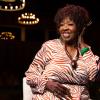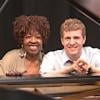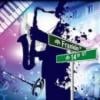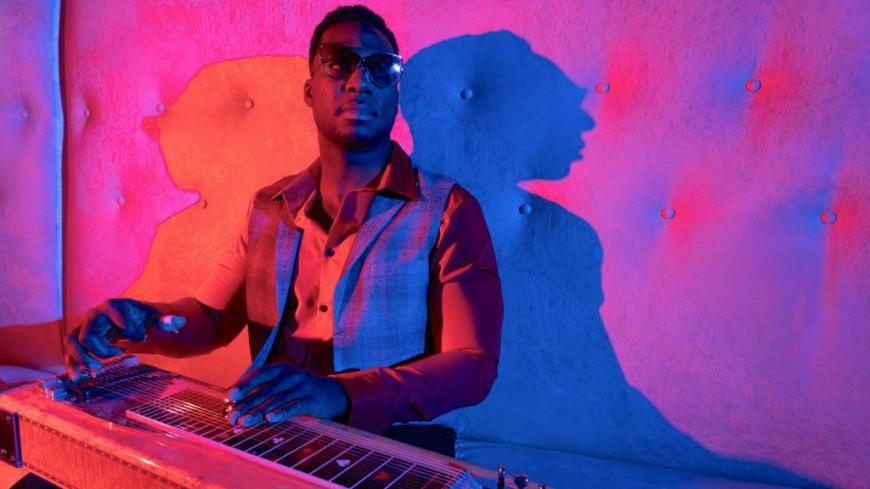
Robert Randolph has done more than any predecessor to evolve the pedal steel guitar past its origins as a descendant of Hawaiian lap steel guitar and a staple of country-and-western music, into an instrument uniquely suited to a fusion of the sounds of gospel, blues, country, rock, and jazz. In the process, Randolph’s Family Band, formed from relatives and fellow devotees in the House of God, a Pentecostal sect, has gained global recognition and collaborations with the likes of Eric Clapton, Dave Matthews, Ringo Starr, Ozzy Osbourne, and Elton John.
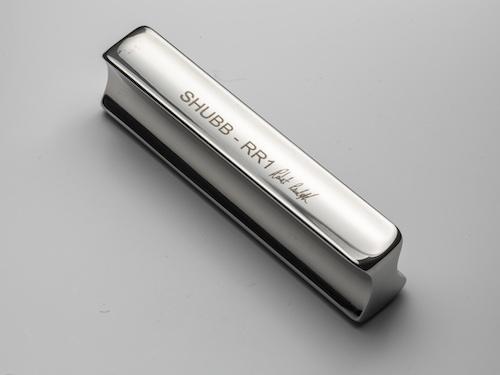
The pedal steel, on which Randolph’s verve and virtuosity are most widely recognized, was integrated into celebratory services in churches soon after the instrument was developed in the 1940s, spawning the genre of “sacred steel” and a handful of recordings. The “steel” in the moniker refers to the metal bar the player slides along the strings with the left hand to intone individual notes or chords. Meanwhile, foot pedals and knee levers alter the pitch of the strings in preset combinations of intervals. The electrified sound, often enhanced with electronic effects, invokes dramatic emotion.
Discovered by a talent manager at the first Sacred Steel Convention in Florida in 2000, when he was 23, Randolph a year later was brought to the attention of both New York Times reviewer Neil Strauss and jazz keyboardist John Medeski, who recruited him for a jam project. In 2001 Randolph’s new Family Band recorded their debut Live at the Wetlands (Family Band Records), and soon became favorites on the New York scene.
Over the next few years, the crowd-pleasing group guested on numerous albums, appeared on Late Night With David Letterman and on Austin City Limits, and toured with Eric Clapton. By now, Randolph, with and without the Family Band, has recorded eight studio and live albums, garnering four blues and rock Grammy nominations, and been a perennial favorite at San Francisco’s Fillmore, where he’ll participate in the Allman Family Revival’s tribute to the late Gregg Allman on Feb. 20. He and the band are regulars at rock and jazz festivals in the U.S. and abroad, including the Bonaroo fest in Tennessee. The band will be back in Oakland at the Coliseum in November. Randolph himself will be featured with jazz and blues vocalist Faye Carol at Geoffrey’s Inner Circle on Feb. 27. Randolph spoke with SFCV by phone from Westchester, New York.
It took me a while to catch up with you. But then, it took me a year to get to interview Sly Stone when I was writing the biography of him and the Family Stone band. So I know how to wait.
I’m a big Sly fan. A lot of the music I make, I keep Sly in mind while I’m creating. Because he meshed gospel and funk and blues all in one, and recreated what then became the sort of gospel and funk and a lot of other elements of what we hear today. I’m just glad that a lot of people are getting educated, due to the work you’ve done and also what Love [Questlove] did with Summer of Soul [the 2021 documentary]. I got young cousins who saw that and were like, “I had no idea Sly was that fucking great!” And I was like, “Yeah!”
I think the first time I heard about you was when you and Steven Tyler performed Sly’s “I Want to Take You Higher” on the Different Strokes by Different Folks cover album, for an Epic Records release in 2006. But anyway, what’s been keeping you so busy?
I’ve been recording for a new record. And I’ve been doing scoring for this show on CBS, called The United States of Al.
Tell me more about the new album.
It’ll be Robert Randolph and Friends, a sort of dirty, bluesy, gospel kind of thing. I’m just going to finish the music, so I can be in my own creative space, and then go find a label, because that’s what you need them for now, as a marketing partner. I need to find the people that understand what I’m saying, so it doesn’t get pigeonholed, doesn’t become a genre. It should just become music, you know.
There are many more people who know your name than who know a lot about the pedal-steel guitar. Can you give us a history of it?
It’s funny, man. I have a lap-steel guitar with the original case that was brought back from Oahu, Hawaii in the 1930s; this guy gave me what his grandfather had brought back. That was eight years ago, and it took me until three years ago to understand the real historical context of it all. [The lap steel is said to have been invented by Joseph Kekuku, a Hawaiian teenager, around the turn of the 20th Century. It joined the glissando and open-chord tuning styles of Hawaiian “slack-key” acoustic guitar.] In the House of God Church, a guy named Willie Eason started the tradition of the lap steel, and later the lap steel became pedal steel.
Why would Willie have thought the lap steel would fit the church?
Some people have a God-given ear. And when you listen to the sound of Hawaiian music, it’s very vocal and spiritual in itself.
I listened to you talking in a video about the electronic effects you use to enhance the pedal steel’s singing sound.
That’s the main role of what we did in church. The singer sings, and then everybody turns and looks at you on the pedal steel, “Take us to the next level!” As Sly & the Family Stone said, you got to take us higher. We had to try to sound like the great singers of the church. We had to carry on those vocal licks, but try to be two people at the same time, also play the rhythm, play the bass. I’d come to church sometimes and it would only be me and the drummer. So I had to play the whole role.
What crossed you over into music from outside the church?
I already knew who Sly & the Family Stone was, we knew the main songs, like “Everyday People”. But I’d never sat down and listened to anyone’s whole catalog. Then our sacred steel music started to get documented by [El Cerrito-based] Arhoolie Records [on CD’s starting in 1997 and in a later documentary, directed by Robert L. Stone and including Willie Eason].
And a guy named Jim Markel [who met Randolph at the 2000 Sacred Steel Convention] gave me a whole box of these secular CDs, from James Brown to the Staple Singers to the Allman Brothers to P-Funk to Zeppelin to the Stax catalog — and I’m still getting through it! I guess that’s the purpose of music, right? You get into a zone, and then the next year you get touched and influenced by the next thing, and that artist or album becomes your favorite go-to for the next few years.
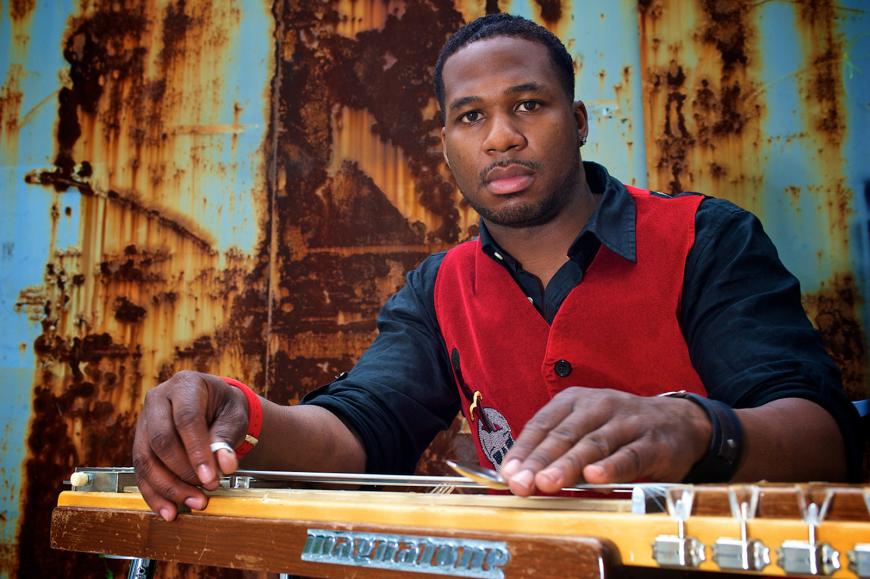
At what point did you see your own way towards bigger audiences and making money doing secular music?
It was funny, man, it happened so fast. The Family Band played our first club show somewhere near the end of 2000, and I still had a job then, working as an assistant paralegal in New Jersey. That job was big money, when you’re only 23 years old. But we did South by Southwest [SXSW festival in Austin, Texas], and then this agent said, maybe there’s an opportunity for you to have a career. I was, “what, really?”
What made your band family?
The thing is, I got so many cousins that play music in the church. It started out as cousins Danyel Morgan on bass, Marcus Randolph on drums, and John Ginty, the original organ player. My sister Lenesha sings, and she was in music before me. She was in high school with Lauryn Hill, so she recorded that whole Miseducation [of Lauryn Hill, 1998] with her and toured with her, when she was still a teenager. Over the years members changed, dealing with the nuances of the road and who got tired of playing.
I’ve noticed that a number of your song titles and lyrics still carry a church message. Does that abide for you?
Yeah, it really does. It’s what you know how to do. Even with Eric Clapton: The blues makes him happy, because he grew up trying to copy what blues players were doing.
I get the feeling you know how to find the stories in the famous folks you’ve gigged with.
It’s weird, because I really didn’t pay attention to all the things I’ve done over the years until I was doing a podcast during the pandemic, and the interviewer asked me about the collaborations with Ringo, Ozzy, the Sly thing with Steven Tyler, there were just so many. Like, I was opening for Clapton in London, and Ozzy and Robbie Robertson were there, we’d all wind up going out and hanging, and the next thing you know we’ve been talking for three hours, telling stories. And that turns into, let me know when you’re in town, I want to record together. Me and Elton John were having this conversation, just like me talking with you, and he was, I’ve never seen anything like [the pedal steel], it’s the most amazing fucking thing! He was just so confused and baffled.
How did you connect for the show you’re doing with Faye Carol at Geoffrey’s this month? Did you know about Faye?
I think there was one time we were playing the Fillmore and had a day off, and one guy said, we have got to go see Faye. But I could never make it. But I’d listened to Faye over the years, because part of what I do is try and copy a lot of singers’ signature vibrato on my slide. A lot of people think of it as jazz, but it’s the original blues.
What are you looking forward to about this gig?
I love playing with great singers and doing this back and forth, almost like challenging each other, having fun moments, because that takes me back to what we did in church. One thing about playing with legends like Faye, they sort of kick you in the ass.
Which of your instruments will you use?
I’m bringing my Jackson pedal steel guitar, which is from the original Sho-Bud company, run by the sons of “Shot” Jackson [the late country musician and instrument designer and manufacturer]. And I’ll have a lap steel from Asher Guitars out of Los Angeles, where Bill Asher makes, hands down, the best lap steels out there.
When will you be switching up?
Who knows, it’s a feeling of what the song calls for.
Do you know what the songs will be?
I have no idea, nobody has told me yet, which is probably a good thing. I kind of like to be surprised and to just kind of dig in.
Yours is the only gig among Faye’s month of Sundays at Geoffrey’s where she won’t have a batch of other musicians backing her.
That was somebody else’s idea, it wasn’t mine. [Laughs] Dennis Chambers, whom I’ve known for a long time, will be on drums, it might have been his idea. But I think it’s going to be fun, I’m down!
Have you ever been to Geoffrey’s?
No, I haven’t. What’s funny is, there’s this buddy of mine, and we’ve been doing this sort of branding of this jazz club that’s going to be in New York City. It’s going to bring an old juke-joint/jazz-club feeling back, but the venue is going to be state of the art. I think it’s going to open in April or May.
One thing I should tell you about Geoffrey’s is, there’s a soul food buffet during the gig, with fried chicken or fish and collard greens and more.
So I’d better make sure I work out in the gym all week before I get there.


